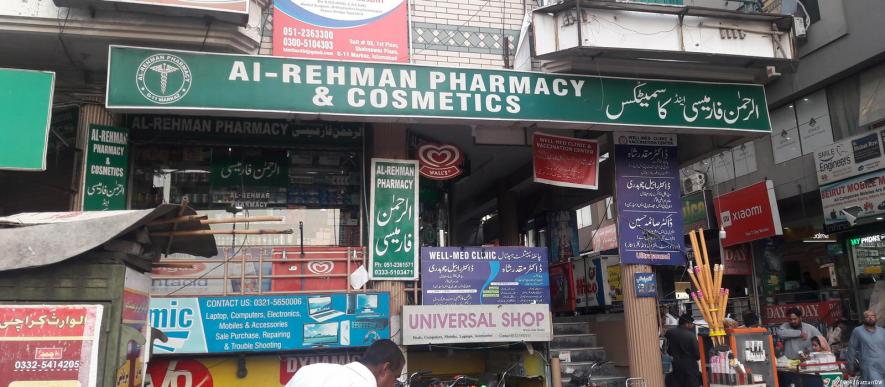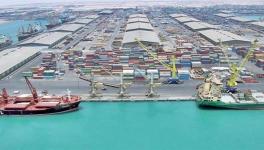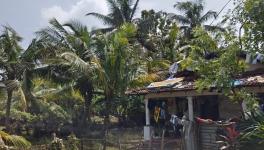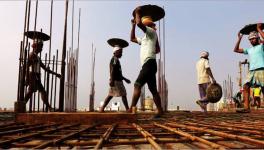Pakistan: Drug Firms Head For Closure Amid Economic Crisis

A pharmaceutical crisis in Pakistan is heating up amid a delay in releasing crucial bailout funds from the International Monetary Fund (IMF) to the tune of $1.1 billion (€1.03 billion).
Medicine production in the South Asian nation has plunged by 21.5% in recent months — mainly due to the prolonged refusal of commercial banks to facilitate the import of raw materials.
Syed Farooq Bukhari, chairman of the Pakistan Pharmaceutical Manufacturers Association, told DW that the banks resumed issuing letters of credit (LCs) in January this year as a formal guarantee to pay for imports. But in light of low foreign exchange reserves, the banks only granted around 50% of requests for the documents, which are issued to goods importers guaranteeing payment within a fixed period.
Bukhari pointed out that granting 50% of LC requests results in "medicine shortages as well as hoarding by wholesalers and retailers."
IMF standoff
Officials blame the LC problem on the country's alarmingly low foreign exchange reserves and insist that it will last until the IMF released the $1.1 billion bailout tranche.
Last month, a team of IMF negotiators held talks with Pakistani Finance Minister Ishaq Dar in Islamabad, but returned to the United States without striking a deal to unlock the funds.
Most of the medicines and other pharmaceutical products manufactured in Pakistan use imported raw materials, whose rates have been driven up by the massive devaluation of the Pakistani rupee over the past year.
The medicine retail prices are fixed by the federal government on the recommendation of the Drug Regulatory Authority of Pakistan (DRAP).
Faltering economy
But Prime Minister Shahbaz Sharif's administration is not accepting the industry's request for a 38.5% across–the–board medicine price hike, fearing a public backlash as inflation has already jumped to about 31.5%.
DRAP did recently approve a slight hike in the prices of 19 medicines, including pain relievers and fever reducers — a move rejected by the industry as insufficient.
Bukhari said the production of some pharmaceutical products had become unfeasible as the value of the US dollar had jumped from 230 to around 270 Pakistani rupees in a matter of weeks, while fuel rates and utility charges were also escalating.
"Four pharmaceutical MNCs [multinational companies] have already left the country and another has gone for force majeure, while 40 local companies have formally told us that they're heading for a shutdown due to the unaffordable cost of production," he said.
He insisted that litigation had delayed relief on medicine pricing to the industry.
Medicine shortage
Pharmaceutical companies have also complained that scores of ships and containers carrying raw materials and medical devices imported from China, Europe and the US are stuck at seaports due to payment delays caused by dollar shortages on the market.
Pakistan's prime minister formed a committee two months ago to look into the issues of the pharmaceutical industry but has yet to meet medicine manufacturers. Meanwhile, the deepening crisis threatens patient care as well as hundreds of thousands of jobs.
Shortages of medicines and pharmaceutical products have been reported across Pakistan.
Muhammad Noor Mehar, chairman of the Pakistan Drug Lawyers' Forum Chairman, pointed out that around 10% of imported lifesaving medicines were in short supply.
He also claimed the unavailability of diabetes, heart, renal and asthma medicines on the market and said that some imported medicines and raw materials awaited clearance at ports.
Surgeries postponed
Doctors at the Federal Government Polyclinic — the second-largest public-sector hospital in the capital city Islamabad — confirmed medicine shortages and said they included Ketaconzole (fungal infection), Risek injection (gastroesophageal issues), Vita 6 (tuberculosis), Treviament (diabetes), Neuromet (anemia and nerve damage), and Herparin injection (blood thinning).
An epilepsy patient, who requested anonymity, told DW that the acute shortage of Tegral tablets used to relieve nerve pain had driven her family from pillar to post.
"Though doctors have put me on alternative medicine, it's really frustrating to see patient care being neglected so callously by those at the helm," she said. "It's a pity that even if you've got the money, it's not necessary that you'll get the required medicines and treatment."
The Centre for Nuclear Medicine and Radiotherapy in Quetta is the only cancer hospital in the southwestern Balochistan province.
Its oncologist and principal medical officer, Jamila Shuja, told DW that the prices of almost all chemotherapy medicines had doubled in a few months, and since most cancer patients were very poor, their medical prognosis and treatment were badly affected.
"Injections Doxorubicin and Kopaque, which are administered to cancer patients, aren't available at pharmacies, but they're sold on the black market at rates 10 times higher than the notified ones," she said.
Muhammad Waheed, a salesman at Najeeb Pharmacy, Islamabad, said Arinac (cold and sinusitis) and thyroid medicines had been out of stock for a long time.
There are also reports that government hospitals have postponed important surgeries due to the unavailability or shortages of imported oxygenators, coronary stents, transplant kits and syringes.
Edited by: Keith Walker
Get the latest reports & analysis with people's perspective on Protests, movements & deep analytical videos, discussions of the current affairs in your Telegram app. Subscribe to NewsClick's Telegram channel & get Real-Time updates on stories, as they get published on our website.
























